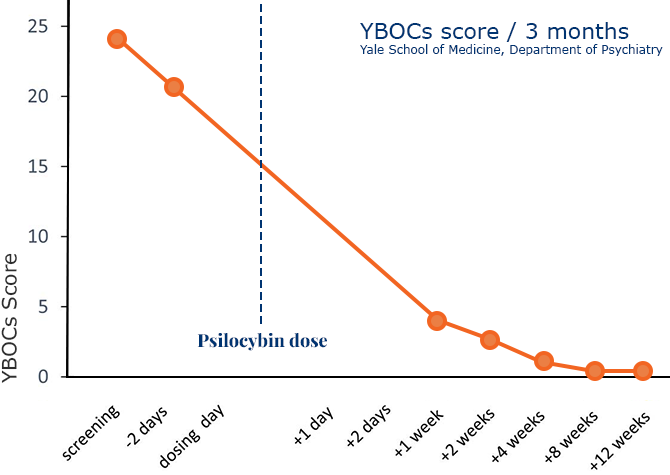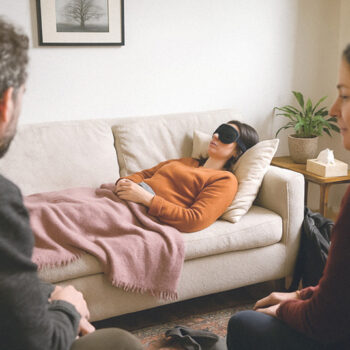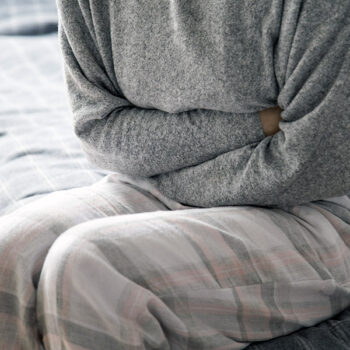Psilocybin and OCD
Psilocybin mushrooms could offer new hope in the treatment of Obsessive-Compulsive Disorder. But to what extent and under what conditions?

Magic mushrooms are gradually establishing themselves as a potential therapeutic option for various mental health disorders. Following impressive results with depression and anxiety, it is natural that psilocybin therapies are now offering hope to people suffering from OCD. However, the disorder remains poorly understood. Doctors struggle to diagnose it, and many people remain unaware for a long time that they are affected. Nevertheless, at least 2% of the global population is believed to suffer from it. Let’s take a look at the current perspectives.
Understanding OCD, a real challenge
Before discussing the effects of psilocybin on OCD, we must first pause to understand what is meant by Obsessive-Compulsive Disorder. Even medical professionals seem uncertain, as the definition may vary from one doctor or country to another, which adds to the difficulty in diagnosing it.
Moreover, the media have mainly focused on repetitive routines, such as repeatedly pressing a switch. But the issue is broader and encompasses a variety of different symptoms.
Recognising OCD
Nevertheless, OCD can be identified by the recurrence of the following problems:
- Obsessive thoughts: intrusive thoughts that take root and recur without being able to control them rationally.
- Compulsions: voluntary yet uncontrollable actions aimed at reducing the anxiety caused by obsessions.
- Routines: related to disorder, hygiene, or repeated checking.
- Feelings of guilt, devaluation, depressive tendencies, or magical thinking (e.g., “If this happens, I will be protected from something”).
To simplify, one might say that Obsessive-Compulsive Disorder is like a mischievous demon that sows doubt—doubt about one’s own safety, health, or morality. OCD tells us we are in danger. Thus, irrational behaviours are adopted to control this danger, to no avail, as the doubt always returns, eventually destroying the quality of life.
Obsessions in the brain
The cognitive elements behind these phenomena are still poorly understood. However, certain factors already indicate that serotonin production plays a direct role in this disorder. It is also known that there is an erroneous response in the brain’s anterior cingulate cortex. This brain area is involved in error detection. In people with OCD, the anterior cingulate cortex seems to detect errors that do not exist and attempts to correct them without success (since they don’t exist). Added to this is an imbalance in the orbitofrontal cortex, reducing the ability to manage emotions. It then becomes impossible to control the anxiety that fuels the existing sense of vulnerability.
Compulsive behaviours are an attempt to respond to this vicious cycle of anxiety.
Psilocybin’s effect on OCD

Since OCD has roots in brain chemistry, psilocybin is a serious candidate for improving symptoms. Several studies on psilocybin’s effect on OCD began in 2023 and 2024. Yale University has pre-published a case study that provides some insights into the impact of psilocybin in treating OCD.
A patient resistant to conventional treatments
Among the patient sample, Yale scientists followed Daniel. Before the experiment, his YBOCS score, which measures symptom severity, was 24—a score classified as “Severe” in medical research. Throughout his life, SSRIs had never shown any significant improvement that would help him distance himself from his obsessions.
Like in a psychedelic retreat, Daniel underwent preparation, a magic mushroom ceremony, and an integration protocol. He received 19.4 mg of psilocybin.
A newfound distance from obsessions
48 hours after ingestion, Daniel noticed a new sense of distance from his OCD symptoms, describing them as less overwhelming. He found it easier to stop obsessive thoughts and return to normal activities. Each day, detaching from the symptoms became easier.
Where he previously struggled to process emotional information from daily life, which triggered obsessive thoughts, he now found himself able to recognise and manage his emotions, allowing him to move on.
A better relationship with himself and others
Twelve weeks after psilocybin treatment, Daniel explained that OCD no longer took up as much space in his life and that he no longer felt ashamed of it. He no longer felt guilty and was able to talk about it with others. Even more importantly, he felt capable of supporting his wife and communicating more effectively with her. He also accepted a job he had previously feared would be too stressful for him.
After twelve weeks, his YBOCS score had dropped to 0.

Will psilocybin cure OCD?
This testimony does not imply that psilocybin can cure OCD, as there isn’t yet enough data. How long will Daniel’s improvement last? Will he need to take psilocybin again to manage his OCD? It’s hard to say. Further testimonials and studies are needed.
However, Daniel’s story offers strong evidence that there is hope for those suffering from this disorder, and psilocybin might provide them with relief, whether temporary or lasting.
Taking a psychedelic retreat for OCD
Legal psychedelic retreats in the Netherlands cater to various purposes: spiritual quests, personal exploration, self-awareness, or seeking new experiences. However, they are not specifically retreats for treating OCD.
Seeking mental balance
A psilocybin retreat offers a deep sense of relaxation and an emotional reset, promoting mental balance. A psychedelic retreat does not aim to cure OCD but to stabilise the mind so that participants can work on whatever they wish (trauma, depression, alcoholism). To achieve this, facilitators meet with each participant individually to prepare for the psychedelic experience and help articulate the areas they wish to explore.
Facilitators then supervise the mushroom (psilocybin truffle) experience. Their mere presence beside the participants creates a sense of safety and protection, allowing them to let go and let the psilocybin work.
A retreat to accept oneself and progress
In the days and weeks following the retreat, participants go through an integration process, involving remote discussion sessions with the facilitators. This process helps analyse the psychedelic experience and understand unconscious elements.
During this period, it becomes possible to address OCD. In reality, it is the participant who progresses at their own pace. This is why the people who benefit the most are usually those undergoing therapy with a psychologist or psychiatrist alongside the retreat. Cognitive Behavioural Therapy (CBT) remains a very effective treatment for OCD, especially during the period of psilocybin’s influence.
The effects of a psychedelic trip
Participants in a supervised psychedelic trip almost always report a reduction in stress and anxiety symptoms, along with an improvement in mood. During the trip, magic mushrooms alter brain activity by acting on serotonin receptors. Self-awareness becomes clearer, leading to behavioural changes that are sometimes astonishing.
Conscious and unconscious effects
Consciously, people experience strong emotions and may see surprising images, such as revisiting childhood as a cartoon, becoming one with nature, or floating in surreal worlds. It varies for each individual.
Unconsciously, the nervous system restructures itself to address anxiety sources. It’s as if psilocybin opens secret pathways in the brain between certain memories and emotions, enabling better cohabitation.
For some, this makes it possible to distance themselves from obsessions or compulsions, understand the reasons behind intrusive thoughts, and reduce guilt.
FAQ: OCD and Psilocybin
The relief following a psychedelic trip can be so powerful that overall anxiety levels decrease significantly. This may reduce obsessive thoughts. However, psilocybin does not cure OCD. What psilocybin does is help individuals better understand their symptoms and work on them to create distance. It is truly this personal work that drives progress. In a psychedelic retreat, the integration sessions help initiate this process.
There may be a genetic predisposition to OCD, but anxiety and post-traumatic stress disorder (PTSD) are the main triggers. Since OCD is linked to serotonin, anxiety, and trauma, psilocybin can play a beneficial role in addressing it.
Selective Serotonin Reuptake Inhibitor (SSRI) antidepressants are not compatible with psilocybin mushrooms. To participate in a psychedelic experience, one must temporarily stop the medication gradually and under a doctor’s supervision.
Currently, Oregon is the only place offering psychedelic therapy for OCD, though spaces are limited. Many people opt for psychedelic experiences in retreats in the Netherlands or Jamaica, where they are legal. However, psilocybin retreats do not offer assisted therapy but rather a supervised psychedelic experience.
Psilocybin remains in the human body for a short time, but its effects on brain plasticity can last several months. However, it is difficult to be precise as many variables—physiological, psychological, or related to the dose of psilocybin—come into play.
The link between OCD and Ayahuasca is not well studied. In theory, its effects may be similar to psilocybin, but more research is needed to confirm this. It is advisable to be cautious, as an Ayahuasca journey can be more intense, and there are no legal Ayahuasca retreats in Europe.
Image from freepik and benzoix, infography from ncbi.nlm.nih.gov
Written by Arnaud Beauregard,
Founder of Tangerine Retreat in 2022, I have followed several paths: initially trained as an engineer and then as an entrepreneur, I later pursued training in hypnotherapy to better understand the inner workings of the human mind. I discovered psychedelics at the age of 55. My encounter with altered states of consciousness proved to be a profound revelation which, over time, became a genuine passion.
Last updated on 7 January 2026





